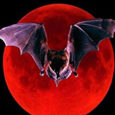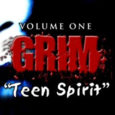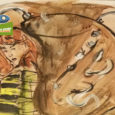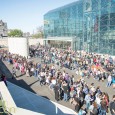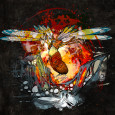Halloween is fast approaching (says the writer who has yet to start making his 1930’s Flash Gordon hot-pants costume) and to celebrate I’ve found a wacky bunch of informative and even a little spooky and all-together amazing books to share with everyone from Applewood Books, who specialize in new reprints of classics from yesteryear. These books are historical, odd, and are still helpful and fun even today. Parents, do you want you and your kids to step away from the TV, tablets and laptops for a little while? Many of these books are chock full of fun and interesting activities and things to do this fall and onwards into the future that will help unplug and interact. Don’t have kids? These books are still great to have and are great references especially if you babysit. Or actually like to have fun. It’s always good to have a party trick. Which leads me to my first pick:
Madam Le Marchand’s Fortune Teller and Dreamer’s Dictionary.
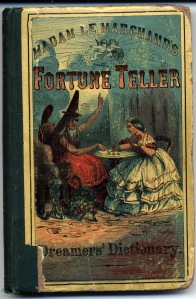
In the spirit of Halloween there is first this fun “occult” gem and guide originally all the way back from 1863. This eerie guidebook to fortune telling provides an endless list of how to tell people’s, especially ladies, fortunes in various ways from rolling dice to tea leaves, palm reading, cards, counting people’s freckles or moles or egg whites, being able to calculate a person’s character and discovering truth from falsehoods. It also includes a nifty pre-Freud “Dreamer’s Dictionary” a glossary of dream symbols and their meanings to one’s future or current state , lists of fortunate and unfortunate days and even particular charms to enact. With this little tome kids at parties or get-togethers can recreate the fervid Victorian interest in the supernatural, read each others or adult’s fortunes and one can liven up any Halloween or Birthday (or even Christmas if you prefer the British tradition of horror and ghost stories) party with a real life Harry Potter Divination “lesson” or exhibition. It’s still fun stuff to do and weird people out. Speaking of finding things to do…there is then my second pick, which is actually two:
The Boys and Girls Own Books
Continuing the guidebooks filled with fun activities to do there are also two books hailing from 1829 and 1834 respectively that can fast become a great source of entertainment; The Boy’s Own Book by William Clarke, and The Girl’s Own Book by Mrs. Maria Child. Written long before the advent of electricity, radio, television, internet and videogames these books are stuffed to the brim with fun games and guides of activities kids can enjoy and play the same way they did two-hundred years ago. It’s not only fun to see what kids back then did, it’s just as much fun to revive them. Many of the games are still played today so many are still quite accessible.
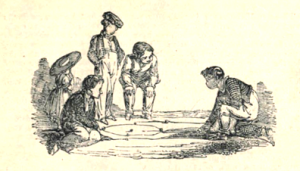
The Boy’s Book is filled with rough and tumble gymnastic games and exercises and chemistry-based experiments and activities that would make most modern helicopter parents faint (yay mercury!), but there are also guides to other ball-based games and small “sports” games ranging from marbles to spinning tops. There are guides on swimming, learning sign language, archery, draughts and checkers, “ledgerdemain” or slight-of-hand and magic tricks, card-games and many other fun miscellaneous activities. One interesting one in particular is how to preserve rose-buds in early summer to bloom at Christmastime (this was before repeating roses were common and the planted varieties at the time only bloomed in late spring), arithmetic games and puzzles, riddles and guide to fishing, fencing and pigeon care. There is literally nothing left out in this little book and while a bunch of entries are purely comical or rather impossible to do now and serve more as a learning experience and a laugh, boys and girls both can still find fun and interesting things to do or learn how to do from this book. It’s super useful for those who watch kids, are a camp counselor or just want to be the “cool” cousin or sibling.
Likewise The Girl’s Own Book is chock full of games in which to play, and while somewhat dated in terms of the scope of what girls could do is still surprisingly engaging; girls didn’t just sit and play with their dolls in fact many of the games suggested in this book are still played today on playgrounds (if kids are even granted recess) by both sexes. The activities in this book are more group based; circle based both word and action games to do with friends most involving a little bit of roleplay. Some games like “Cries of Paris” involve a lot of roleplay, each child assigned to be a certain pedlar (cherries, umbrellas, water-bearer, flowergirl etc) which also involves the use of french phrases. Perhaps a helpful exercise and game for French teachers to try out. The Girl’s Own Book also features guides to archery, riddles and puzzles, tongue teasers and songs, active games like shuttlecock (similar to badminton), old out of fashion or rather forgotten games like the more or less exclusively female game la grace (small hoop throwing and catching back and forth on two rods) and even a guide to calisthenics. Additionally the Girl’s book is much more creative activity based, providing different things in which to actually “make” with one’s hands such as paper screens, many different types of baskets, paper cutting and folding, candle ornaments, engraving egg shells, butterfly and leaf impressions, and then domestic topics with guides to sewing and knitting and even encyclopedia-esque guides to bees and silkworms, on keeping animals and also gardening. While a bit less full to the brim with activities as The Boy’s Own Book it still is a extremely cool book full of activities to try instead of the usual offers. I’d gift both books together as a bundle for both girls and boys to get a complete scope of fun stuff to do or as a gift for teachers and babysitters.
Onwards to my third pick!
Goops and How to Be Them: A Manual of manners for Polite Infants by Gelett Burgess
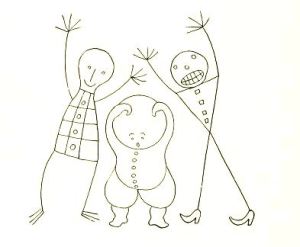
A Goop and his wall drawings.
This 1900 book is a guide on manners full of small little poems and poem-y stories to teach etiquette and proper outstanding morals in children. It’s notable for its very stylized and simple illustrations featuring the titular ” Goops”, children who are depicted as these bald round headed little caricatures with noodley almost octopus like arms and simple but very expressive faces including quite a bit of side-eye. Many of the little ditties featuring these Goops as they both behave and misbehave are actually still pretty applicable to kids today, but the real charm lies in the artwork, whose simplicity and quirkiness looks like something someone today would come up with, not 113 years ago. The poems and little stories are charming in their own way and while somewhat dated the book can still be enjoyed for the illustrations alone which are quite different from most children’s book art of the time which leads us to my final pick….
Freaks and Frolics of Little Girls and Boys by Josephine Pollard
If this book title doesn’t belong in an October review then someone help me. This lushly illustrated book of poems and little ditties about mischievous, overtly emotional or just naughty children in the era of being seen but overall not to be heard or fuss is different from the above book in that it is more conventional in it’s “playing it straight” Victorian earnestness…but…. there’s something amiss and extremely compelling amongst its gorgeous color prints. While a great deal of the entries are straightforward tales about little girls such as “Foolish Fanny”, and “Stupid Jane” (things that don’t age too well) and boys like “Teasing Tom” and “Inky Jake” all of whom express “too much” of a certain emotion, or are vain, or get ink everywhere, essentially examples of what not to be…there….seems also seems to be….oh….a poem-story about a kid catching on fire as a warning not to play with fire. Okay. Let’s see…oh god she’s getting attacked by winged pies….and oh god a boy makes himself into a kite….another boy getting attacked by poultry and other farm animals in his dream…..oh….oh my. He actually gets dipped into a vat of ink? Oh god. This is some weird stuff. Help. Help.
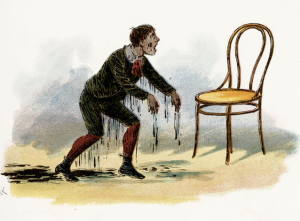
Amidst the earnestness and some rather dated and “cutesy” stories there are somewhat macabre or fanciful additions to teach those kids who are seen as less than good or well behaved a “lesson” that truly put the “freaks” in the book. These are further emphasized or rather contrasted by the very pretty, conventionally detailed and idealized artwork of the time which is a treat to look at especially for those interested in what I’ll assume is mostly middle and upper-class fashion and activities of the time for children. The array of socks, bows, stockings and shoes and jackets the little boys wear is just as interesting to look at as the girl’s smock dresses maybe even more so as the boys fashions are no longer really worn whilst variations of some of the girls’ dresses are still used and worn by little girls even today. Much of the behavior seen in the book would not be seen as freakish today either but more reflects what was seen as bothersome to Victorian sensibilities so it’s further a curious read to see how things have changed and realize how things have changed since then too. Yet another book that is great for checking out for the illustrations, fashion, and bizarre stories alone.
So if you can, take a look into the past this week and pick up one of these books or seek them out to have or give to others as they’d make a perfect gift for the right kid or person. You might learn something frighteningly good if you do!
See you next week!
Max Eber
Staff Writer/The Doctor
max@sub-cultured.com
Twitter: @maxlikescomics


